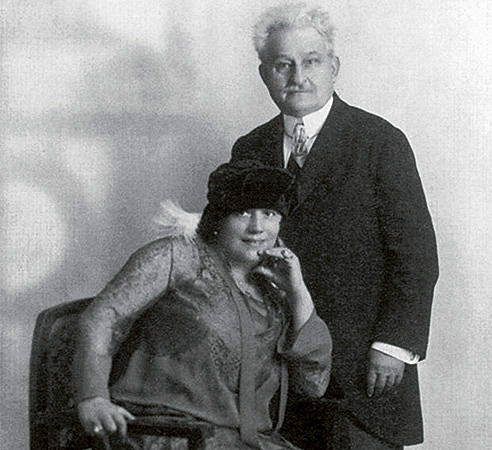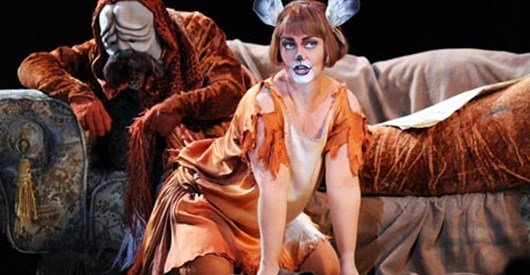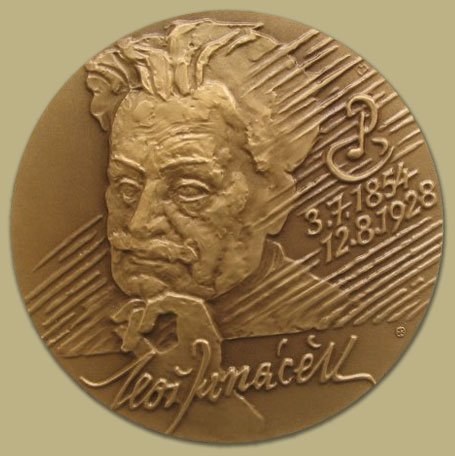Janáček’s unrequited love
One of the key works in this Saturday’s concert by the Jubilee Quartet is as much beautiful as it is poignant. We explore the background to this extraordinary work and the learn more about the meaning of Janàček’s ‘Intimate Letters’…

Leos Janàček
It was the summer of 1917, in a spa resort called Luhačovice in Moravia, now part of the Czech Republic. Here, the 63 year old composer, Leos Janàček met an ordinary lower-middle-class Czech housewife of 25 named Kamila Stösslová. It might simply have been a holiday fling or a transient romance. It was neither – but Janàček was to become infatuated with Kamila for the rest of his life.

Luhačovice
Kamila lived in Luhačovice with her two sons and was loyal to her army serving husband David Stössel. Janácek’s opening line was ‘You must be a Jewess!’ Kamila was small and had black hair and dark eyes. Janàček thereafter addressed her as his ‘gipsy’.

Kamila Stösslová
For the first few years, Janácek and his wife Zdenka treated Kamila like a daughter, but the aging composer soon developed an overwhelming obsession, writing to her almost daily with what was to amount to over 1000 letters addressing her with such epithets as:
‘My angel! My muse! You who light my divine spark!’

Janacek and Kamila
What Janácek failed to obtain in reality, he obtained in his imagination. In his letters Janácek fantasises about Kamila as his ‘wife’. He imagines her as pregnant with his child. But in his music he went further still and actually wrote Kamila into his music. She became his inspiration for the heroines of his three great operas: Katya Kabanova, The Cunning Little Vixen and The Makropoulos Case.

The Cunning Little Vixen
The impact of Janàček’s profound obsession with Kamila – possibly because of her very unattainability – was that it gave him the inspiration and drive to blossom as a great composer during the last decade of his life. His last work was his Second String Quartet, subtitled ‘Intimate Letters’ in which the very themes in his letters are woven into the fabric of the music itself.

Janàček’s letters
In April 1927, he wrote that her very presence will make his compositions:
‘more passionate, more ravishing: you’ll sit on every little note in them. I’ll caress them; every little note will be your dark eye.’ ‘Oh Kamila,’ he continues, ‘it is hard to calm myself. But the fire that you’ve set alight in me is necessary. Let it burn, let it flame, the desire of having you, of having you’

Harry Goodman and Rosamund Pike in ‘Performances’ by Brian Friel
Yet despite invitations to come and hear performances of the music she had inspired, Kamila never attend a single concert. She had no particular interest in music and probably never really appreciated how significant a figure Janàček was.
In 1928 Kamila and her family visited Janáček to his holiday home in Hukvaldy. It was early August and Janáček caught a chill whilst searching for Kamila’s son in the woods. Four days later he died of pneumonia with Kamila by his side. The last few words he wrote were:
‘And I kissed you. And you are sitting beside me and I am happy and at peace. In such a way do the days pass for the angels.’
Sadly, Kamila herself was to die young – not long after Janáček in 1935 – so she never knew the tragic fate that befell the other members of her Jewish family whose lives were to end in concentration camps.
Janáček was always aware that the letters might find their way into other hands: ‘I always think to myself,’ he wrote, ‘will some inquisitive person spy on this daily correspondence? Yet it’s only my conversation with you – when mountains divide us. A conversation without which I couldn’t exist.’

Janáček medallion
Hear the Jubilee Quartet play Leos Janáček’s ‘Intimate Letters’ at this Saturday’s concert at the Old Theatre Royal at 7.30pm.
Also don’t miss the Pre-concert Q&A with the quartet and Ian Martin of Bath Hospital Radio.


